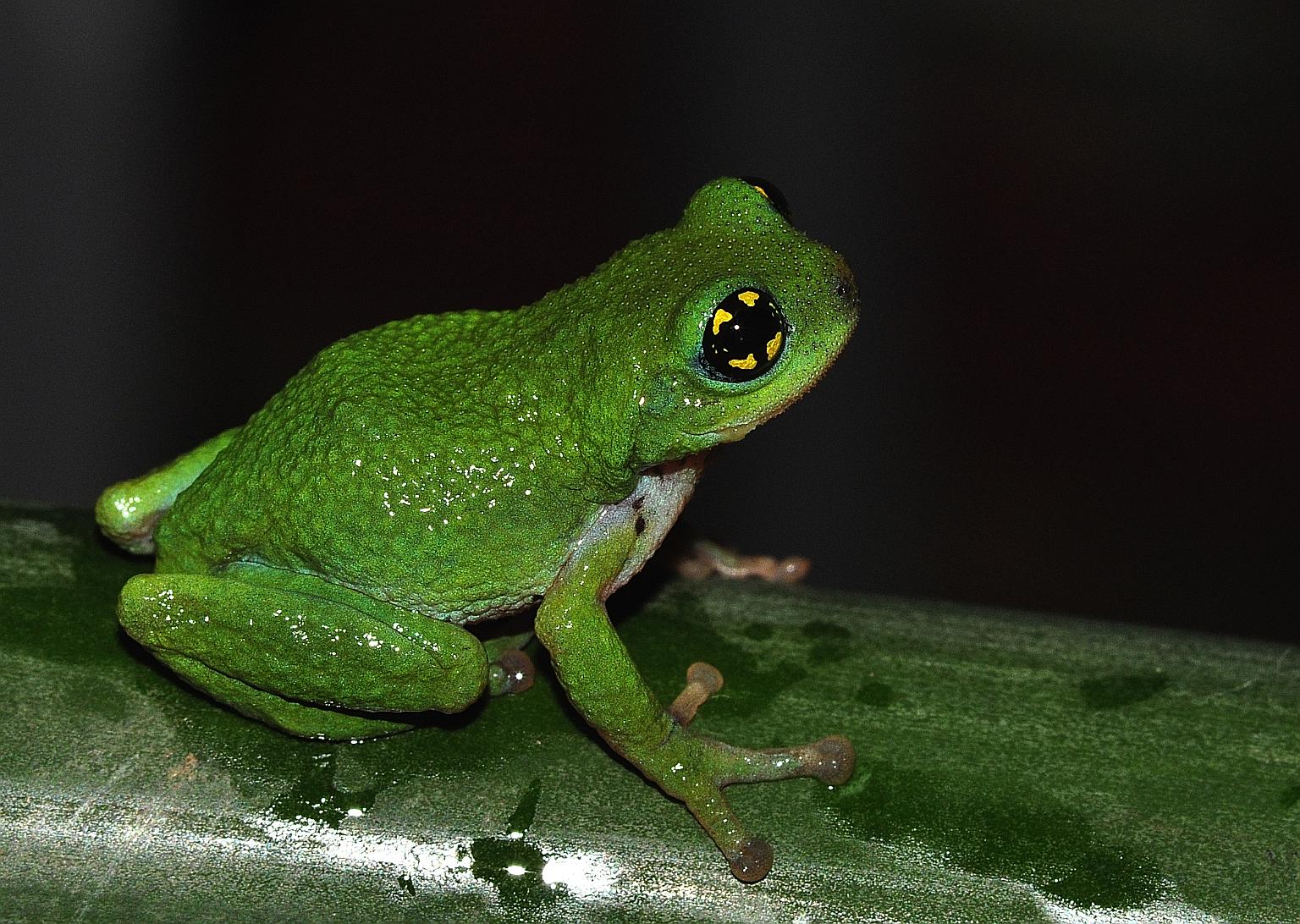Father frogs stand guard over eggs for two months
The tiny creature keeps up near-constant vigil against cannibalism and other predators
Sign up now: Get ST's newsletters delivered to your inbox

The white-spotted bush frog, which is only 2cm long, is critically endangered and was believed to be extinct until it was rediscovered in 2011, in the Western Ghats of India.
PHOTO: K. S. SESHADRI
Samantha Boh
Follow topic:
Frog fathers are known for their exceptional parenting.
Some carry eggs in their mouths, let developing tadpoles hitch a ride piggyback style, or hide them in tree tops.
Now, Singapore researchers have discovered another devoted frog father - one which spends close to two months egg-sitting his charges, rarely leaving the bamboo hollows where the eggs are hidden.
These male white-spotted bush frogs or Raochestes chalazodes go to the extent of calling out incessantly through the night to ward off other males and predators that might eat their offspring, said lead researcher K. S. Seshadri, a PhD candidate from the National University of Singapore's Department of Biological Sciences.
"This continues for about 37 to 47 days when all of the eggs have either hatched or perished, typically due to predation or parasites," he added.
The findings came about after Mr Seshadri and his team studied more than 40 egg clutches across two breeding seasons in 2015 and 2016. They were published in scientific journal Behavioral Ecology and Sociobiology in December.
-
Other exceptional animal dads
SEAHORSE
After a female seahorse lays her eggs in a male seahorse's pouch, the eggs are fertilised by the male, which provides them with the nutrients they need to grow. He keeps them snug in his pouch for two to three weeks until they emerge as fully developed baby seahorses.
Labour can last several hours, during which he gives birth to 100 to 200 babies on average.
EMPEROR PENGUIN
After mating in the winter, the female lays an egg, rolls it onto the male's feet, and then promptly takes off to replenish the nutrients she has lost.
While she is gone, the male is responsible for keeping the egg warm through the freezing Antarctic weather. He will fast for more than 100 days as he waits for his chick to hatch, going off to feed only when his mate returns.
GIANT WATER BUG
After mating, the female glues a brood of more than 100 eggs to her partner's back (above).
He will carry the eggs around for three weeks, where he does deep knee bends to circulate the water around him to help the developing embryos absorb oxygen more easily from water. He will also make trips to the surface to supply oxygen to the eggs and sun himself to ward off parasites.
The tiny white-spotted bush frog, which is only 2cm long, is critically endangered and was thought to be extinct until it was rediscovered in 2011, in the Western Ghats of India.
Unlike most frogs, which lay eggs in or above standing water, they lay theirs in the hollow internodes of reed bamboo along stream banks.
The researchers found that male frogs call out to potential female mates when they find an ideal site for spawning. An interested female will then enter the bamboo to lay her eggs on the inner walls of the section, leaving after the eggs are fertilised. After that, the male frog becomes the sole caregiver.
"Father frogs will then attend to the eggs by sitting on them, possibly to keep the eggs hydrated, and they guard the eggs by standing between them and the entry hole where they will lunge at intruders and make loud alarm calls to keep them away," said Mr Seshadri.
They leave their eggs only in the evening to hunt for prey close by.
Eventually the offspring will emerge from the eggs as fully-formed froglets instead of tadpoles.
Such devotion by father frogs is necessary to keep their eggs alive, as cannibalism is common among frogs, Mr Seshadri said.
Adult male white-spotted bush frogs feed on unattended eggs for nutrients, to take over another individual's territory or to reduce competition for their own offspring.
"When there were no father frogs guarding the eggs, less than 30 per cent of the eggs in a clutch survived," he said.

